What does it mean to vote? How do you conduct a civil debate? What are the biggest issues the next generation will face when it’s their turn at the ballot box?
It’s a big day in politics, no matter where you live, which means there’s no better time to introduce your children (or grandchildren!) to the power of civic discourse. Whether through the history of getting the vote for all women or learning how to participate in productive debate — or tackling contemporary issues of climate change, migration, global conflicts and our responsibilities to each other during a pandemic — you can learn a lot about our world by reading local.
Here’s eight books to get you started.
Civic Discourse
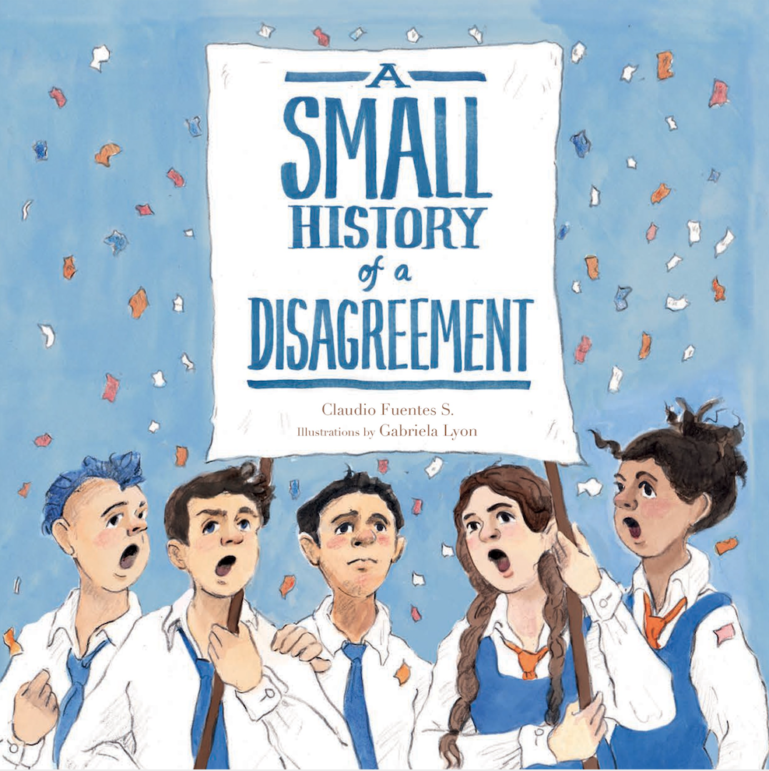
A Small History of Disagreement
Claudio Fuentes
Greystone Kids
In A Small History of Disagreement, author Claudio Fuentos (through a wonderful translation by Elisa Amado) explores debate and protest through a class dispute over a favourite campus tree and plans to renovate their school. Beautifully illustrated by Gabriela Lyon, young readers can experience civil engagement and collective problem-solving in a way that will inspire them to become active thinkers in their own communities.
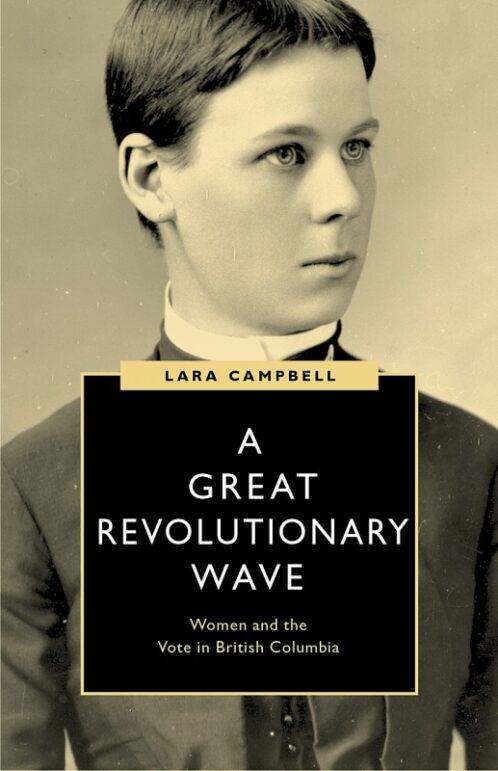
A Great Revolutionary Wave: Women and the Vote in British Columbia
Lara Campbell
UBC Press
High school students can become immersed in one of several of UBC Press’s serial books on the history of the women’s vote in Canada with A Great Revolutionary Wave, chronicling suffrage in British Columbia, while challenging narratives of the broader movement across the country. Students will learn the tactics of these female forbearers — and the decisions they made that would disenfranchise and exclude Indigenous and Black women from participation for at least another thirty years.
Climate & Environment
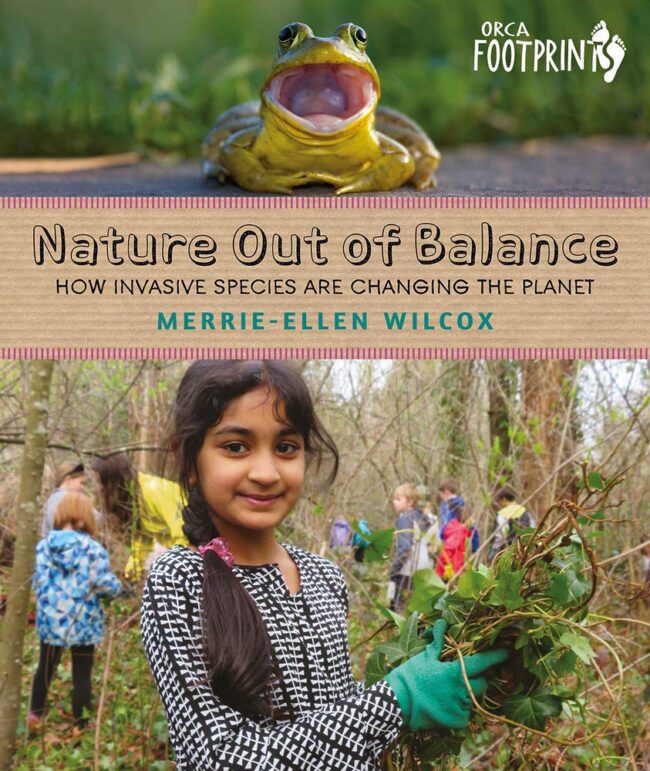
Nature Out of Balance: How Invasive Species Are Changing the Planet
Merrie-Ellen Wilcox
Orca Book Publishers
What are invasive species and why should we care? How do we manage environments that are changing when prevention is no longer an option? In Nature Out of Balance, author Merrie-Ellen Wilcox explores the “all-stars” of the invasive variety, chronicling the plants, animals and insects that have moved in — and are here to stay, including, of course, humans.
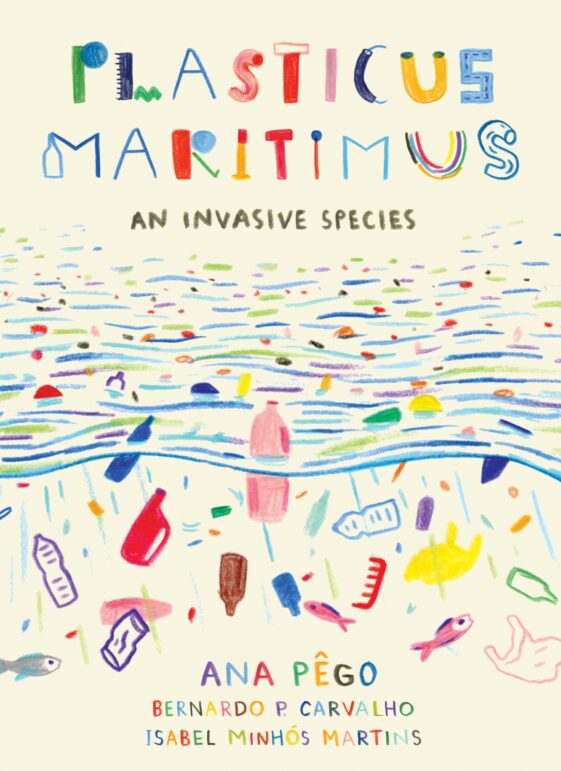
Plasticus Maritimus: An Invasive Species
Ana Pêgo and Isabel Minhós Martins
Greystone Kids
Inspired by the real life of biologist and author Ana Pêgo, Plasticus Maritimus confronts the threat of plastics in our waterways, and the far-reaching impacts they have on our environment, on marine life, and our drinking water. Most importantly, this stunning picture book shares the ways we can do better, collectively, to combat this man-made menace.
Emigration & Immigration
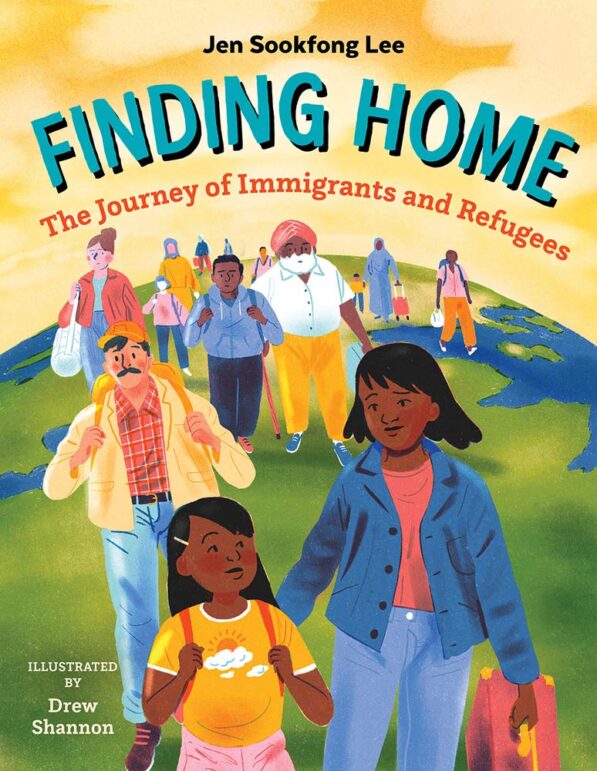
Finding Home: The Journey of Immigrants and Refugees
Jen Sookfong Lee
Orca Book Publishers
Issues of migration have been top of mind recently, and Finding Home is a children’s primer in understanding the reasons why people leave one place for another, as well as what “home” really means. A local author and daughter of immigrants, Jen Sookfong Lee shares perspectives from refugees, asylum seekers, immigrants and more, creating a book which personalizes a topic so frequently spoken of in abstraction, exploring themes of safety, security and happiness.
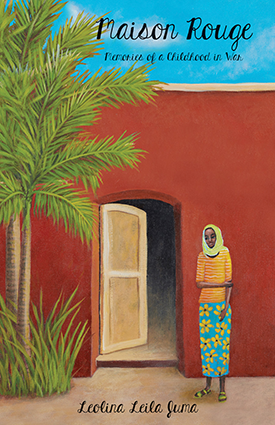
Maison Rouge: Memories of a Childhood in War
Liliane Leila Juma
Tradewind Books
Called “a thoughtful, moving story of loss and triumph” by Kirkus Reviews, Maison Rouge is the true life story of author Liliane Leila Juma, her family and their escape from the war-torn Democratic Republic of the Congo. After witnessing a friend taken as a child soldier, the murder of her father and the complete collapse of her comfortable and secure family life and country, Juma’s family relocate to Canada through the UN’s refugee program. This is a tale of inconceivable loss told with young readers in mind: dignified, intimate and powerful.
Population & Pandemic
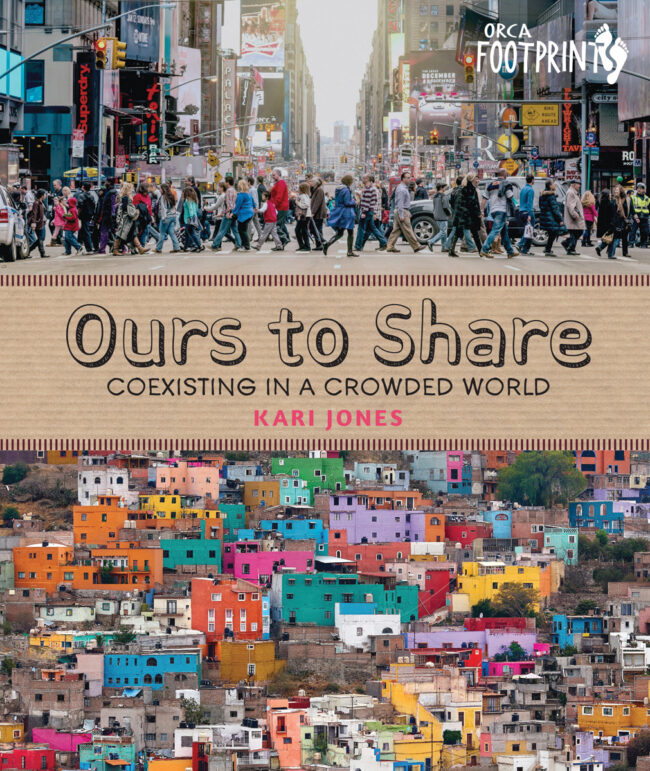
Ours to Share: Coexisting in a Crowded World
Kari Jones
Orca Book Publishers
With almost eight billion people living on the planet today, and a deepening divide in the equitable allocation of resources, humanity is already having to contend with the pressures it places on social and natural resources — and find solutions for poverty and hunger, as well as access to technology, medicine and education. Kari Jones invites young readers to contemplate worldwide inequities by exploring the history of human population, and offers suggestions to make the world a better place… for everyone.
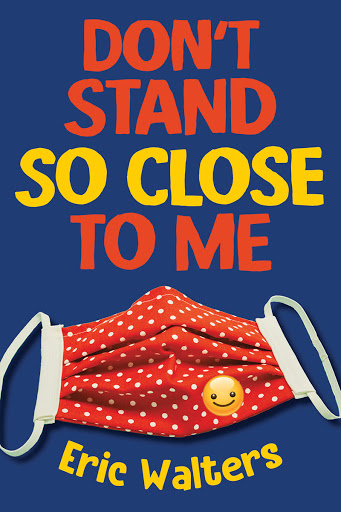
Don’t Stand So Close to Me
Eric Walters
Orca Book Publishers
A BC bestseller, and timely as we continue to navigate wave after wave of a global pandemic, Eric Walters’s Don’t Stand So Close to Me is a story about thirteen-year-old Quinn and her friends living through COVID-19, something they thought only meant two extra weeks of spring break. But when Quinn’s father, a doctor, has to self-isolate to protect his family, and lockdown procedures come into play, Quinn and her friends learn its far more than that — and sacrifices, whether in not visiting grandparents or learning online, will have to be made. Reassuring and hopeful, Don’t Stand So Close to Me is a necessary text in a time of deep uncertainty, and will leave children with understanding and resolve to be creative problem-solvers in a time that needs them most.
What local books are your kids getting political over? Share them with us at #readlocalbc.

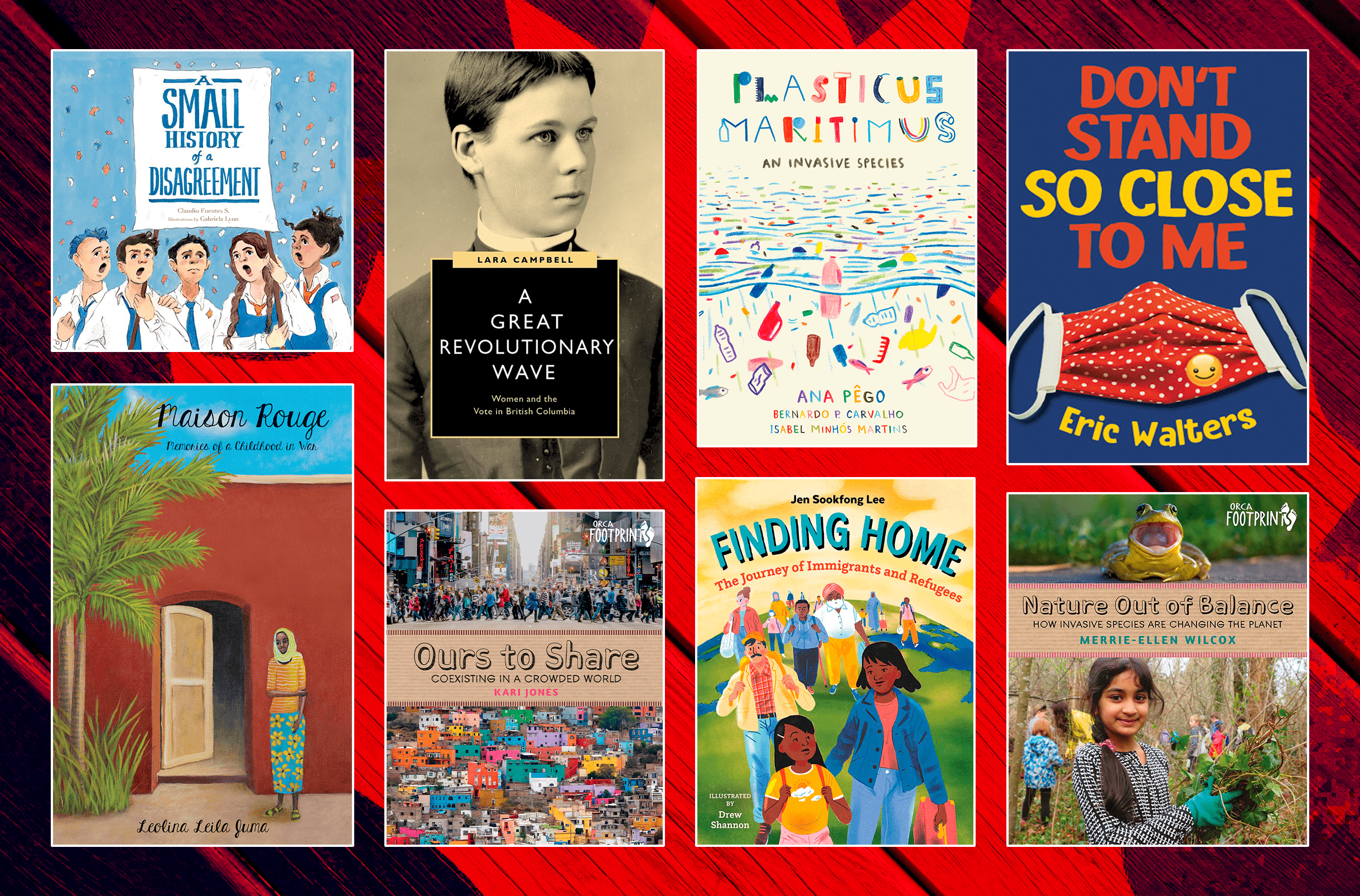
2 replies on “Citizen Kid: An Introduction to Activism and Politics”
I’d like to suggest a story for younger kids by Rie Charles called “Just a kid”, published by Red Deer Press last year. It’s about nine year old Meerin Hoy who, by learning about the municipal government process, working with her neighbours to raise awareness and offering a logical alternative to the powers-that-be, saves her community park from being developed into condos.
Sounds like a great read, thanks Bette!